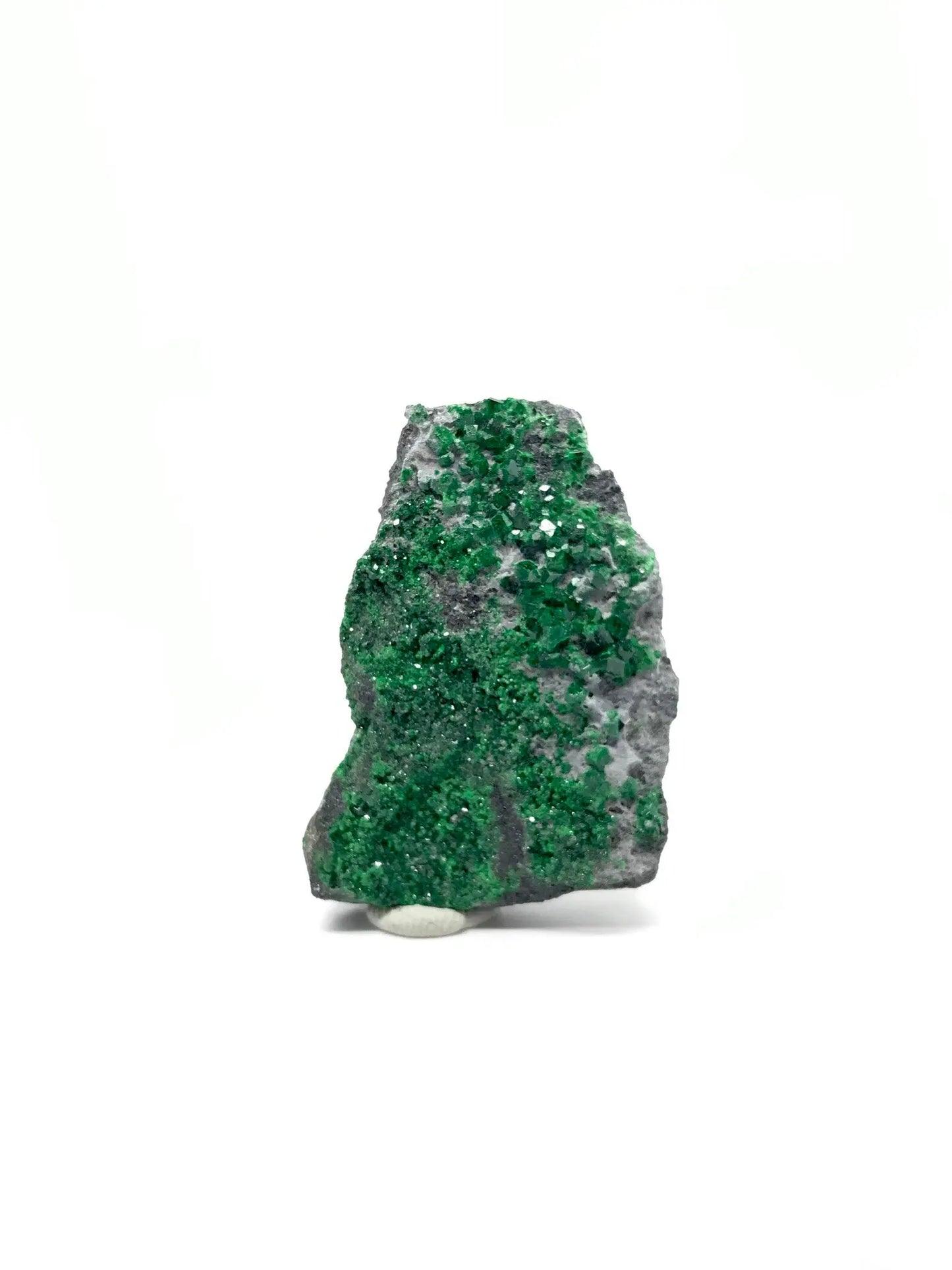Tarazed Gems & Jewellery
Uvarovite Garnet (Russia)
Uvarovite Garnet (Russia)
Couldn't load pickup availability
Uvarovite Garnet (Russia)
Mineral: Garnet var. Uvarovite
Origin: Saranovskii Mine, Saranovskaya Village, Gornozavodskii District, Perm Krai, Russia
Color: Vibrant Dark Green
Treatment: None
Approximate Dimensions: 3.2cm x 4.5cm x 0.7cm
Weight: 29g
10% of this purchase will be donated to GreenPeace East Asia
The most significant source of uvarovite historically has been a now-closed copper mine at Outokumpu, Finland, from where most museum specimens have been collected.
Uvarovite occurrences in the United States are predominantly found in the western portion of the country, including localities in New Mexico, Arizona, and California. In the eastern United States, uvarovite has been confirmed in Lancaster County, Pennsylvania.
Notable localities in Europe besides the Outokumpu site known to bear uvarovite include Roros, Norway; Pitkaranta, Finland; Val Malenco, Italy; Pico do Posets near Venasque, Spain; Kip Daglari, Turkey; and Biserk and Sarany, Russia.
In Africa, uvarovite has been reported from the Bushveld Igneous Complex of Transvaal, South Africa and from the Vumba Schist Belt in Botswana.
In Asia, uvarovite has been reported from Taiwan. and Japan
In Australia, uvarovite has been reported from chromite deposits in southern New South Wales.
Thousands of years ago, red garnet necklaces adorned the necks of Egypt’s pharaohs, and were entombed with their mummified corpses as prized possessions for the afterlife. In ancient Rome, signet rings with carved garnets were used to stamp the wax that secured important documents.
The term carbuncle was often used in ancient times to refer to red garnets, although it was used for almost any red stone. Carbuncle was thought to be one of the four precious stones given to King Solomon by God.
Centuries later, in Roman scholar Pliny’s time (23 to 79 AD), red garnets were among the most widely traded gems. In the Middle Ages (about 475 to 1450 AD), red garnet was favored by clergy and nobility.
Color may vary in images and videos due to different lightings and angles.
Share


